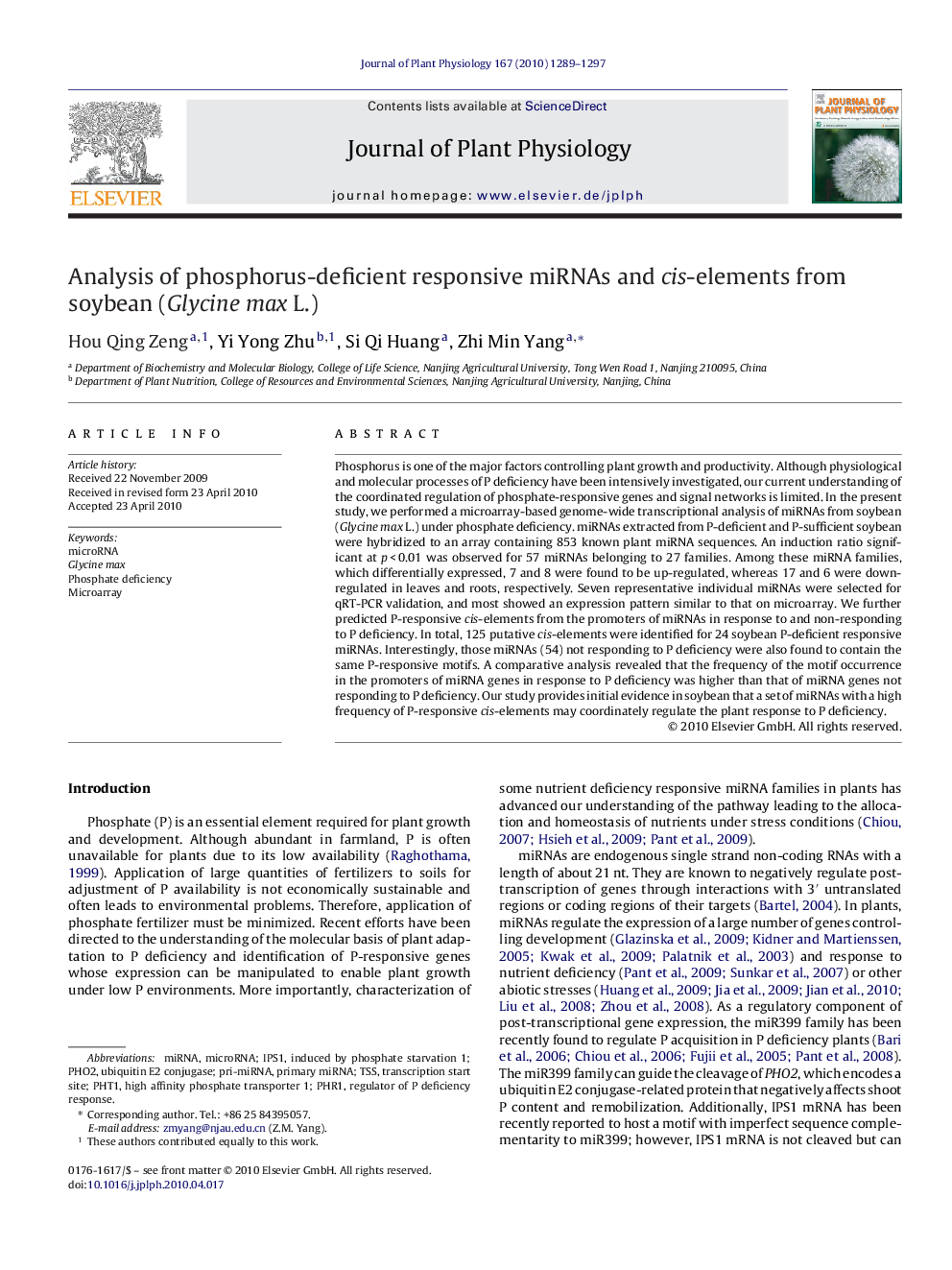| Article ID | Journal | Published Year | Pages | File Type |
|---|---|---|---|---|
| 2056764 | Journal of Plant Physiology | 2010 | 9 Pages |
Phosphorus is one of the major factors controlling plant growth and productivity. Although physiological and molecular processes of P deficiency have been intensively investigated, our current understanding of the coordinated regulation of phosphate-responsive genes and signal networks is limited. In the present study, we performed a microarray-based genome-wide transcriptional analysis of miRNAs from soybean (Glycine max L.) under phosphate deficiency. miRNAs extracted from P-deficient and P-sufficient soybean were hybridized to an array containing 853 known plant miRNA sequences. An induction ratio significant at p < 0.01 was observed for 57 miRNAs belonging to 27 families. Among these miRNA families, which differentially expressed, 7 and 8 were found to be up-regulated, whereas 17 and 6 were down-regulated in leaves and roots, respectively. Seven representative individual miRNAs were selected for qRT-PCR validation, and most showed an expression pattern similar to that on microarray. We further predicted P-responsive cis-elements from the promoters of miRNAs in response to and non-responding to P deficiency. In total, 125 putative cis-elements were identified for 24 soybean P-deficient responsive miRNAs. Interestingly, those miRNAs (54) not responding to P deficiency were also found to contain the same P-responsive motifs. A comparative analysis revealed that the frequency of the motif occurrence in the promoters of miRNA genes in response to P deficiency was higher than that of miRNA genes not responding to P deficiency. Our study provides initial evidence in soybean that a set of miRNAs with a high frequency of P-responsive cis-elements may coordinately regulate the plant response to P deficiency.
